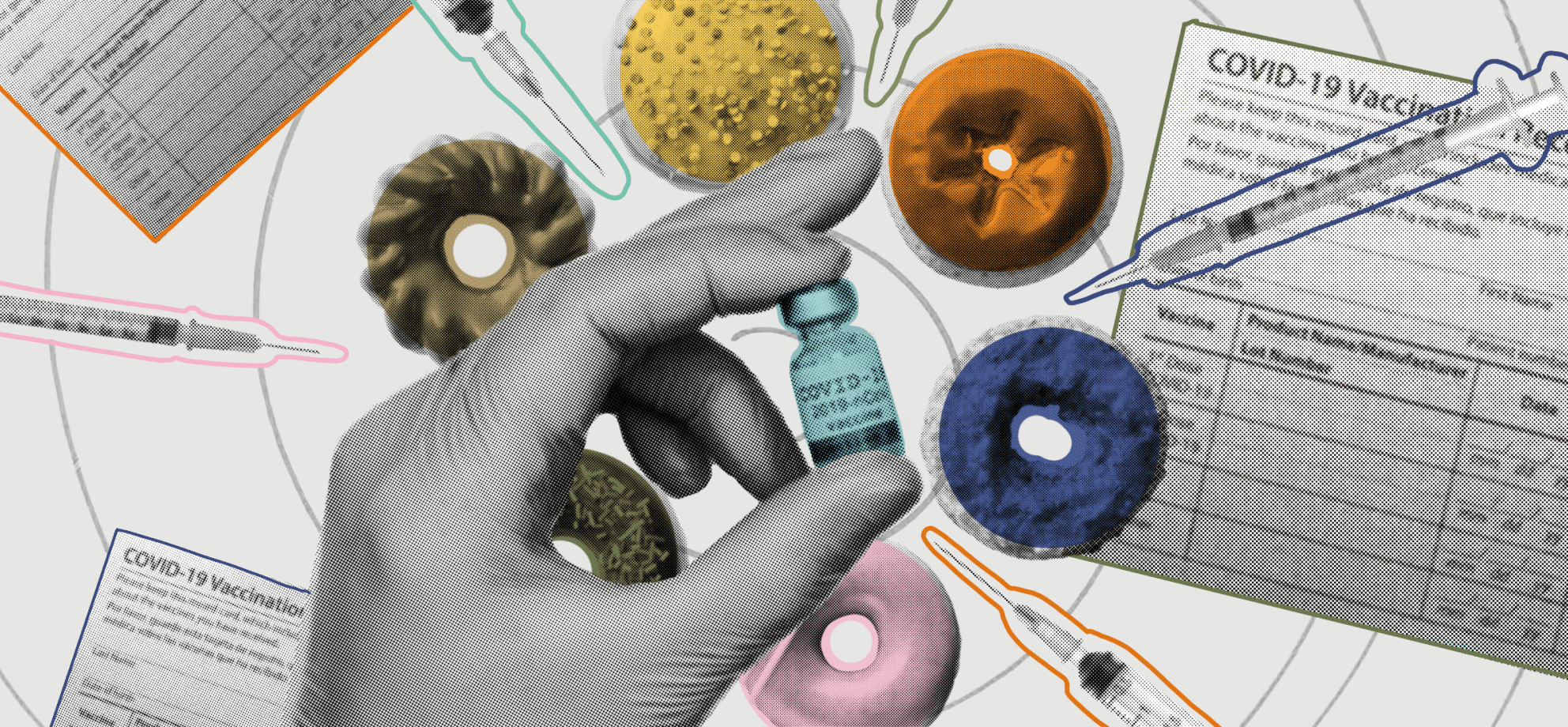
Even in an era full of surprises, no one expected Krispy Kreme to become an outspoken advocate for public health. But by offering a free donut for those choosing to get vaccinated — every day for a year, no less — the brand emerged as a leading voice in a pressing national conversation.
Sure, a year’s worth of deep-fried sugar bombs might counterbalance the positive effect of a vaccine. Even if the virus can’t get you, a heart attack still will. Then again, since a robust BMI might have scored you early access to a shot in many states, the donut may have literally become the circle of life.
Given the range of public opinion on vaccination — despite staggeringly positive safety and efficacy data — Krispy Kreme’s offer was a riskier gambit than one might expect. Brands historically err on the side of caution, steering clear of controversial topics in order to maximize their base of potential customers.
Yet on this topic, they calculated that a pro-vaccination message was a risk worth taking, even at the expense of countless free treats. Whether the company was chiefly motivated by warm-hug altruism or stone-cold capitalism — alive customers are traditionally better for business, after all — it unequivocally took a side.
So far, Krispy Kreme’s free press coverage has proven as expansive as its most loyal customers. Their early success raises a larger question for companies of all industries in these critical months ahead. Is it wise for a brand to encourage vaccinations, or better to avoid a sticky subject?
According to the data, consumers not only want brands to speak up on the matter — most see it as their duty. A Harris Poll/Adweek survey showed 60% of respondents consider it their obligation to encourage vaccination. An even higher 62% went a step further, saying brands should go beyond mere information dissemination and actively dispel myths surrounding vaccines.
Beyond principle alone, sweetening the deal does help. The study revealed that 70% of consumers felt rewards like Krispy Kreme’s could be effective in getting shots to more people. Critically, it also suggested a commercial boon, with 60% saying they would be more likely to buy from a brand promoting vaccinations.
The survey did surface an exception: in one segment of households earning between $50,000 and $75,000, a majority opposed pro-vaccination efforts from non-healthcare brands. But crunch the overall numbers — as brands undoubtedly have been — and the benefits of taking a stand seem to outweigh the risks, at least on paper.
Zoom out to the macro level and an endorsement of inoculation seems even more obvious. A more efficient national effort means a speedier economic recovery across industries, with the possible exception of the funeral business. And the logic holds both inside and outside a company’s doors; just as healthier customers spend more, healthier employees work harder.
But beyond the numbers, a brand’s character should also be a factor. Most organizations espouse a set of corporate values for the purpose of guiding important decisions, and on this issue, their interpretation seems clear. Truth and integrity? Follow the science. Health and wellness? Check. Supporting the community and championing inclusion? Practically a no-brainer.
Over the last several weeks, many brands have already followed Krispy Kreme’s example and sprung into action. Companies have offered their employees paid time off, even bonuses, to get a shot. Some imaginative product incentives have also appeared for customers, from free popcorn at the movies to a complimentary joint at a dispensary.
So the data show public support, the business case is solid, and the values are aligned. Why, then, is a pro-vaccination stance not being taken by every American brand?
Some might believe it’s best for a brand to “stay in its lane” and avoid expressing an opinion outside of its industry. While that rationale dodged plenty of bullets in past decades, expectations shifted in the past year as many brands broke barriers in supporting issues like racial equality. And regardless of what you sell, a pandemic affects every one of your customers in some fashion.
Other companies may be skirting the issue for fear it breaks a long-held tradition of advertising: depicting a fantasy world that’s enabled by their product. Feel-good brands would rather not remind us that we’re still in crisis, and in their view, even the most hopeful pro-vaccination message could risk depressing consumers.
One high-profile example says it all. With a few notable exceptions, this year’s Super Bowl ads and the game itself were designed to look and feel as “normal” as possible — several months before the real world actually would. As viewers, we once fast-forwarded through ads. Now they do it to us.
But the biggest obstacle, whether it’s spoken or not, is pure fiction: that vaccines are a political issue. While it’s true that certain actors have tried wielding the topic to stoke culture wars, the truth is as non-political as issues get. The virus belongs to no party, the science has spoken, and reaching the finish line quickly is in everyone’s interest.
Because brands wield great influence, they can diminish the voices of wedge-issue types with a louder and clearer message: we’re truly all in this together, and we each carry an obligation to our neighbors. Especially now that we’re so close to getting this all behind us.
Where other opportunities for unity have evaded this country, from terrorist attacks to recessions, solving this issue could be our most lasting chance to achieve something together. All it takes is one simple act, taken at a nearly negligible risk. And if a few thoughtful brands can offer a donut or a doobie to nudge people along, that seems well worth the effort.


.png)